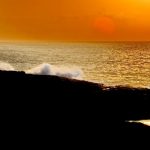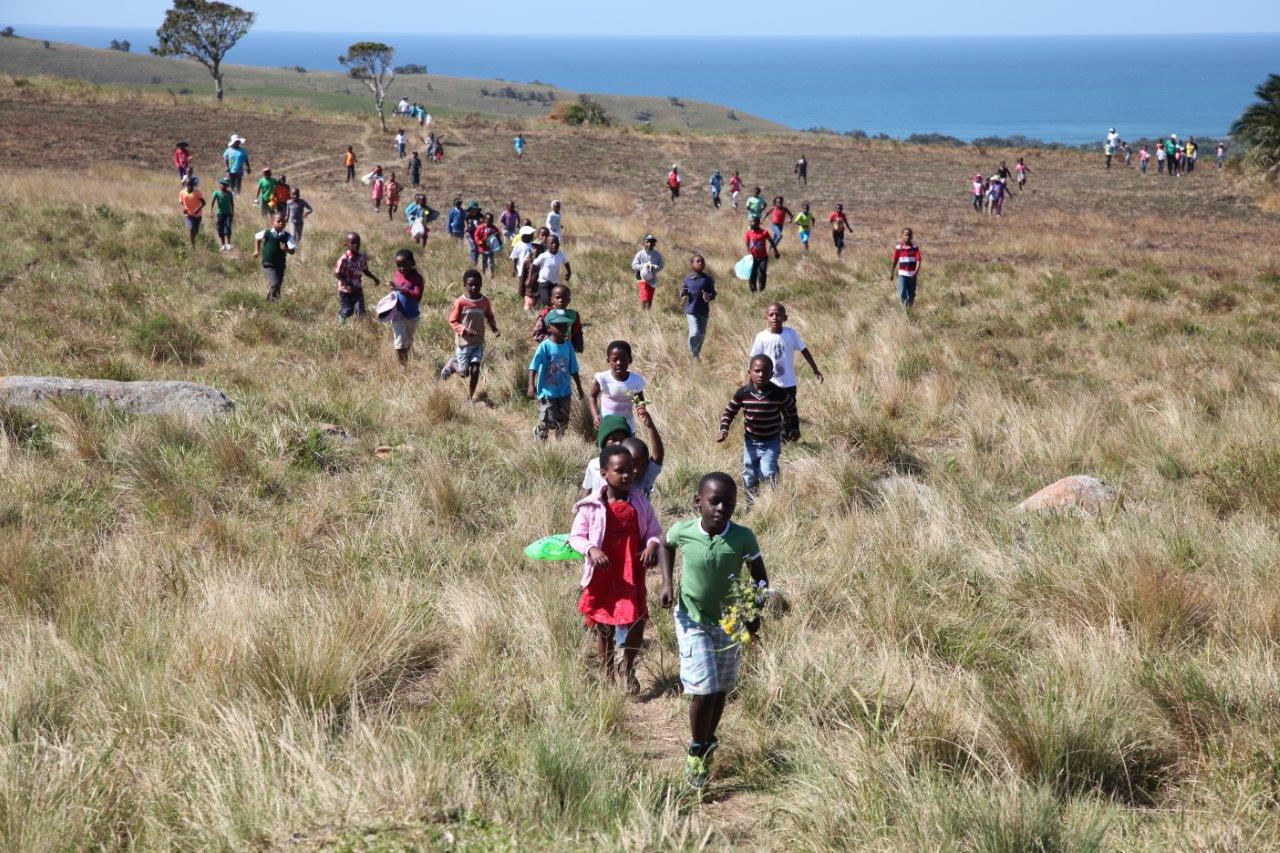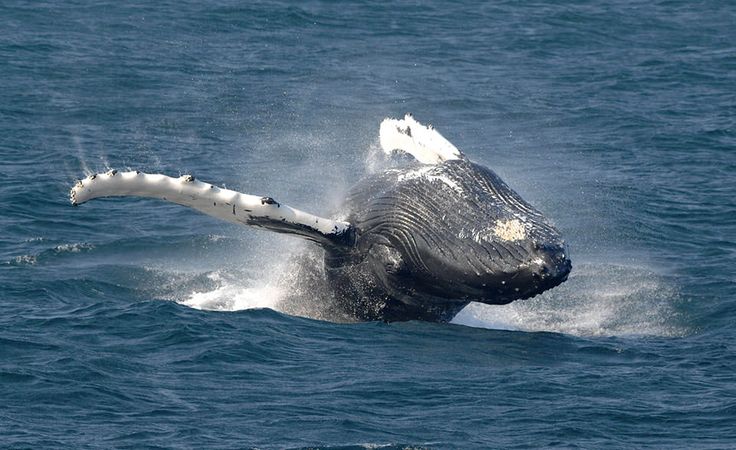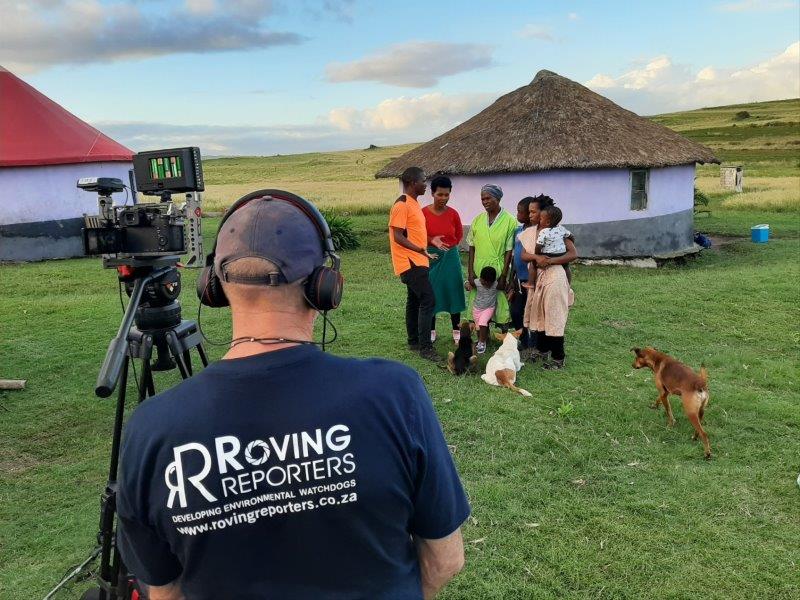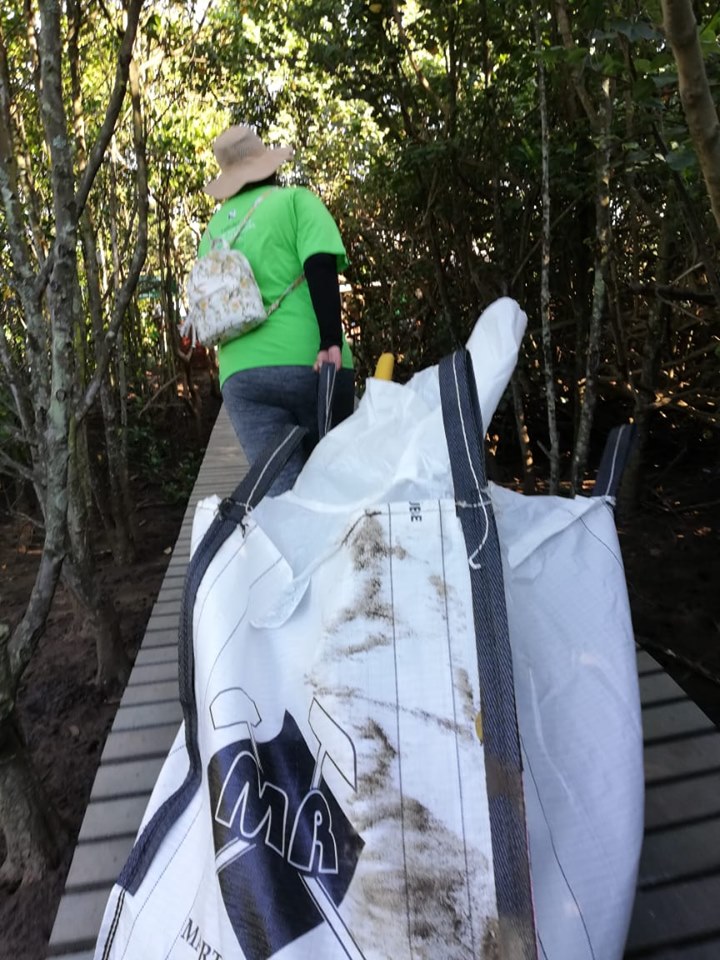Marine Protected Areas are excluding coastal communities from accessing natural resources they had traditionally relied on, says a WildOcean’s intern who has just won an award to produce a documentary titled Wild Coast Wallflower.
Fred Kockott and Mlu Mdletshe
The indigenous beliefs and knowledge of the people matter just as much as the reasons Marine Protected Areas exist, argues an aspirant filmmaker, Jamila Janna.
Janna was one of 11 aspirant filmmakers shortlisted to pitch documentary ideas at the Nature, Environment and Wildlife Filmmakers’ (NEWF) conference in Durban this week.
In her award-winning pitch, Wild Coast Wallflower, 22-year-old Janna described how she had been raised in a conservative Durban community that placed little value on women.
“I have been constrained by some religious laws that see females fit for household duties alone,” said Janna. This lifestyle, she said, reduced women to nothing more than just wallpaper.
Clash
“My communities perception of who I was meant to be and my perception of who I should be clashed, horns first,” said Janna. She said this was also the case when Marine Protected Areas were implemented without considering the needs of indigenous people living in these coastal regions, as in Hluleka on the Wild Coast
There is an exclusion of the communities in the decisions being made for them which parallels with my life story,” said Janna. “I’ve stumbled across a community that lost their coastal space 26 years ago and whose voices are still ignored till this day. The people of Hluleka, who live around the narrow Hluleka MPA are traumatised and resistant to outside help and do not believe in scientists having good intentions.”
“At a job interview four months ago, I was asked what my 5-year plan was. I said: ‘I was born in Lusikisiki in the Transkei. I would like to go back , engage with the different communities and expand conservation knowledge within these communities,’ ” said Janna. “Now I stand before you, humbled to share an idea that is part of my 5-year plan,” said Jenna. “The Hluleka people need a voice to start drawing urgent attention to coastal communities who are excluded from decisions made about them.”
Engagement
There is a bitterness and anger that we need to address before it is passed down to coming generations, she added.
The University of KwaZulu-Natal marine biology honours student and WildOceans intern, said her film would be shot “fly-on-the-wall, reality-style”, capturing the conversation of a group of locals who are willing to tell their story.
“I do not know what they will say to me and it is a process I will not disturb. But I will come to them as a Xhosa, black Muslim woman who recognises that we have let these people’s plights fade away into the background while we live our lives,” said Janna.
Healing
“I’m not a saviour to the Hluleka people, rather a medium that will create an avenue for healing,” she said.
Janna was invited to pitch at the congress after her presentation on the diets of two species of St Lucia snails was well received at last year’s Conservation Symposium in the KZN Midlands last year. >> Read Gastropod girl Janna is pitch perfect.
Janna will be mentored by former 50/50 content producer, Bridget Horne, in making her documentary.
Celebrating this milestone in Janna’s young career, WildOcean’s Youth Develoment and Strategic Manager, Nikki Chapman, said: “We are very proud of Jamila, trying to keep conservation alive and at the same time communities uplfited. She is brave, standing up for women and communities in distress. She is also poetic, able to tone down science in a way it becomes accessible. Any documentary she makes will be worth the watch.”
Turtles
Other NEW Pitch winners, all of whom receive a R50,000 grant to produce their short documentaries, include Jessica Lambson, who is to make a documentary on the endangered leatherback and loggerhead turtles at KwaZulu-Natal’s (KZN) Isimangaliso Wetland Park. She is being mentored by Emily Cross, one of last year NEW Pitch winners. >> Read Girl with the Wild Dog Tattoo
“There will be an underlying story of a mother turtle and her hatchlings, revealing the emotions and characteristics that these magnificent creatures inhabit,” said Lambson.
The 20-year-old said she had been inspired to make the doccie – working title “Between the Tides” – after witnessing a honey badger attacking a turtle nest in the park, leaving only a few hatchlings to make it to the ocean.
“That night I decided that something should be done and came up with this idea that I presented,” said Lambson, a film and cinematography student at AFDA.
Cape Flats
Shamier Magmoet also received R50 000 for his documentary, ‘Rise From the Cape Flats’, which will follow his life, from the Cape ganglands to starting an initiative with some friends to teach children about marine conservation.
Speaking at the awards ceremony, programme director Noel Kok said: “We started the NEW Pitch competition because we realised this industry urgently needed to transform and allow African people to start telling their own stories,”
Tebogo Peterson, one of the five judges, said: “I cannot single out anybody but I am particularly proud of all the finalists from Durban. Their pitches were well rehearsed and presented. “”More youth should take notes from what these young people are doing to change their world.”
The other winners and their projects were: Faine Loubser, A prickly Affair, Tembisa Jordaan, Meeting the Tides; and Tami Marriot, Pango – The Unchanged Pangolin.
- Mlu Mdletshe is a Durban University of Technology journalism graduate enrolled on Roving Reporters environmental journalism training programme supported by the Human Elephant Foundation.
FEATURED IMAGE
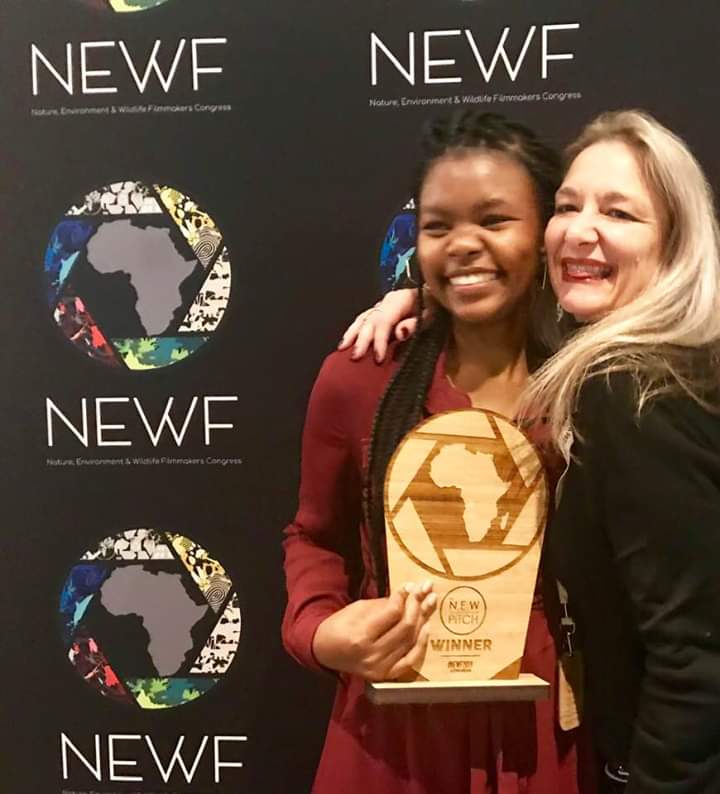
Former 50/50 content producer, Kirsten Horne, celebrates Jamila Janna’s successful documentary pitch at the Nature, Environment and Filmmakers congress in Durban last night.
On Janna’s succesful pitch, Horne said: “I’m so incredibly proud of Jamila and humbled to be her mentor on this journey. She’s an extraordinary young woman who’s challenging stereotypes and pushing boundaries. She’s also got real, raw talent as well as a passion for the environment. As a marine biologist with a gift for writing she’s a rare combination of science and creativity. I have no doubt that Jamila’s going to be a fresh, strong voice in the world of conservation filmmaking in the very near future!”
Horne is a documentary film producer and has produced and written shows locally and internationally for National Geographic Wild, Travel Channel and earthtouchnews.com. She is also the former Head of Content/Managing Producer at South Africa’s longest running environmental TV Show 50/50 on SABC 2.

